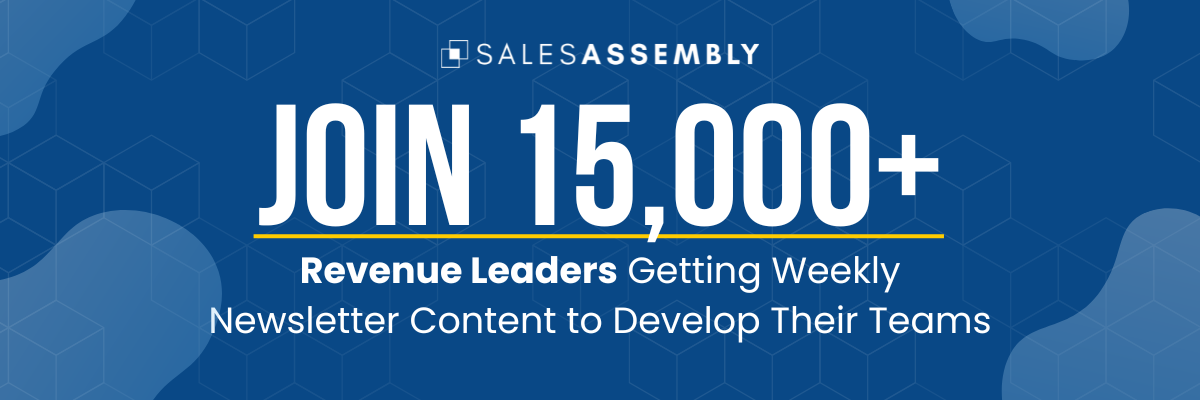In the most recent episode of Taking The Lead, Jellyvision Chief Revenue Officer, Helen Calvin sat down with Christina Brady to discuss a number of topics, including a discussion on seeking promotions and hiring the right people. A few of the quick highlights in this article:
- Career progress begins with the interview process that becomes easier with useful tips
- Helen Calvin, Jellyvision’s CRO has a broad knowledge of recruiting process, and she is extremely good at choosing the right people for a company
- Helen shares valuable insights on job interviews, career progress, and useful tips on how to excel in your career.
Especially in a remote environment, hiring the right new people has never been more difficult and particularly more important. Organizations are all searching for potential employees who check all of the boxes, while maintaining exceptional personal characteristics including coachability, humility, and grit.
Helen Calvin’s behavioral science background helped her come up with innovative solutions for both organizations and job hunting employees. In this week’s episode of Taking the Lead, she shares valuable insights about job interviews and career progress.
How do companies find the right people?
Helen shares some useful tips and tricks about hiring the right people for your company, what to look for, and whether companies should look for executive roles outside of the organization.
Helen says that there are two points of view regarding the decision to promote from inside or out of the organization. To find the best solution, you need to ask yourself these questions:
- Do we have the skills in-house that can be grown into this role?
- Do we have a good career pathing mechanism where people might’ve gotten some of the foundational pieces, and we just have to add on a couple more layers to get them where we need to go?
- Is it a completely new role, is it something that we haven’t had the skill sets before?
From the position of an employee seeking a promotion, “You shouldn’t be asking for the promotion. You should be talking about the impact to the business. You should be talking about the results that have been driven, and then frankly, the promotion or the career progression, all those things, they just become obvious. It doesn’t have to be some really scary, arduous conversation,” she says.
Helen strongly believes that you should showcase your skills and that the promotion will come after that. If you have to ask for it, then the company you are working for is probably not a good fit for you.
How Can An Extremely Successful Sales Rep Be Dangerous For A Company?
Helen thinks that despite having amazing performance, the lone wolves are dangerous for a company and can have a terrible influence. She shares useful insights on how to manage those people and recognize them during the interview. “I see too many sales organizations become beholden to their top-performing rep who makes two and three and five X their quota, or I’ll hear a sales manager or a CRO say to me, but she’s 30% of my yearly sales,” Helen says.
While prioritizing the position of a results oriented rep is necessary for success, Helen claims it can do more harm than good for a team. “She’s dragging the rest of the organization down. You know she’s toxic and that she or he is frankly bringing the production of everyone down, probably at a rate that is under her/his 30% production,” she adds.
By empowering the work of an entire sales team, the production outcome will be far greater than putting all confidence in one successful rep. The work environment will also promote a greater sense of camaraderie in the absence of competition or even aversion from a lone wolf employee.
The Sweet Spot Between Talent And Skills
Helen firmly believes that talent, grit, and resilience are sometimes far more important than technical skills. “Maybe there are some things that you’re born with, but also just how adaptable are you? I think sometimes we think too myopically how coachable are you. But do you actually want self-propelled learning? Not just am I going to learn when given prescriptive, precise feedback, and I change based on that feedback. How much am I propelling my own development and growth, my own adaptive learning?” she says.
The most successful employees perform a check-in with themselves from time to time, ensuring that they are advancing both their technical skills and personal characteristics. In the case that there is lackluster performance on the personal skills side, seek feedback from mentors and respected colleagues.
This article is based on an episode of Sales Assembly’s podcast, Taking The Lead, which features top female B2B Tech Revenue Leaders, VCs, Advisors, and Icons. Bi-weekly episodes dive into a tactical topic to help listeners (regardless of gender or seniority level) learn how to be better, faster, and smarter as they navigate the craziness of the Revenue world within B2B Tech.






